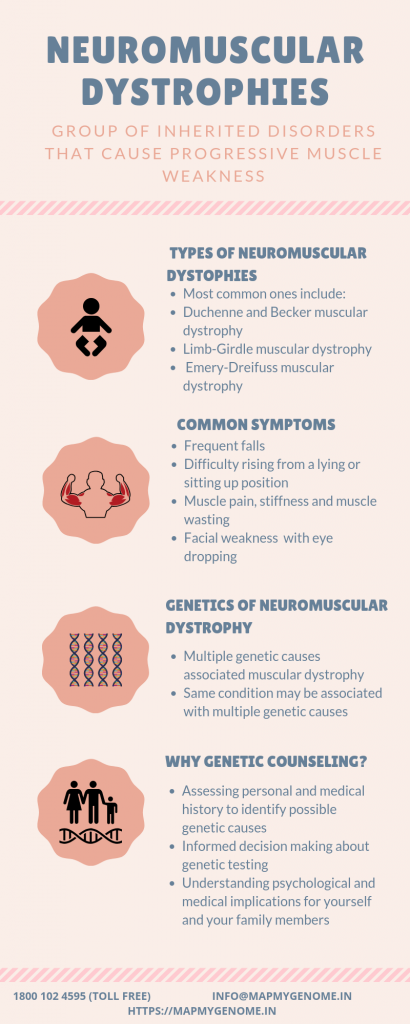Quest: Case Study Part 1
Sep 11, 2018
5991 Views
Genetic counselors often have the opportunity to meet with individuals or families who present with immense determination to find answers and they take us along on a journey into the rather elusive world of genetics. I recently participated in the care of a young, spirited woman who inspired me with her will to find answers. Let us call her Prakruti.
Prior to meeting with Prakruti, I was not aware of her personal or family history — except that she was interested in genetic testing. She and her husband were scheduled for a pre-test appointment. During any pre-test genetic counseling appointment, the genetic counselor will meet with the individual/ family to gather information on personal and family history in order to make an assessment of possible genetic causes of the disease and inheritance patterns in the family; and to discuss risks, benefits, and limitations of genetic testing in order to facilitate the process of making informed decisions about genetic testing. This session also allows the genetic counselor to explore the motivation for genetic testing and in addition, help anticipate some of the implications of genetic testing on the individual and the family.
During my pre-test appointment with Prakruti, she shared her personal and family history and expressed her interest in genetic testing. She and her sister had developed progressive peripheral muscle weakness in their 20s. Despite going through multiple invasive clinical examinations, tests and screening, her sister did not receive a specific diagnosis for her clinical symptoms, much to Prakruti and her family’s disappointment and frustration. She shared that she does not wish to proceed with any painful invasive tests that do not lead to conclusive results. She expressed that her main motivation to proceed with genetic testing was to be able to receive a confirmed diagnosis, which will allow her to participate in research studies or clinical trials and benefit from connecting with other individuals or families with similar diagnoses.
As we reflected on her journey so far and helped them anticipate the implications of genetic testing, many themes soon emerged in our conversation:
Diagnostic odyssey
Diagnostic odyssey refers to the time period since the initial presentation of symptoms of a long-standing undiagnosed medical condition to the time a conclusive diagnosis is achieved. A recent European study has shown that about 25% families diagnosed with a rare disease on an average wait 5–30 years before receiving a diagnosis. The wait for receiving a diagnosis, repeated testing, and multiple visits to the various specialists can be emotionally and financially taxing on a family. Prakruti and her family have spent years and been through multiple tests in search of a diagnosis. They have received multiple possible diagnoses; unfortunately, none has been confirmed.
Uncertainty of prognosis
It can be challenging to predict the progression of the disease and severity of symptoms without an accurate diagnosis. Predicting the prognosis of genetic conditions can be further complicated by multiple genetic causes for the same disease and the varying degree of severity or range of symptoms in individuals with the same genetic mutation. Many individuals experience loss of sense of control when faced with such uncertainty. Prakruti shared her distress caused due to the unpredictability of her disease progression. However, she remains resilient, taking one day at a time.
Isolation
Lack of a definitive diagnosis, the rarity of symptoms, and the uncertainty of disease progression can be significant factors contributing to the isolation of an individual or a family. Many families may also face loss of social support from family and friends due to lack of time for interpersonal interactions or attending social events. In some cases, there may also be some amount of stigma associated with ill health or disability that may prevent them from attending social events. Often, family’s members dealing with similar medical issues find support in each other, as Prakruti and her sister did.
Hope
Individuals or families who are dealing with a diagnostic odyssey pursue genetic testing in the hopes of finding a definitive diagnosis. For many, identifying an underlying genetic cause for the disease may bring closure. In many cases, learning the genetic basis of their condition can help in risk assessment for other family members and better management of symptoms. Learning about underlying genetic factors can help in identifying research groups or clinical trials that focus on specific genetic mutations or diseases. Confirmation of a diagnosis can help families to identify families or a community facing similar challenges.
Circling back to my session with Prakruti…
We discussed that while it is possible that many neuromuscular dystrophies have an underlying genetic cause, there is a small chance that genetic testing may not provide conclusive results. We reviewed the benefits, limitations, and ramifications of genetic testing. While a positive genetic test result would identify a genetic mutation that may explain personal medical history; a negative test result does not eliminate all chances of an underlying genetic condition. Most genetic test results are reported as either positive (a harmful mutation was detected) or negative (no mutation was detected) results. There is a chance that a variant of unknown significance (VUS) may be identified. VUSs are genetic variations that have not yet been classified as either deleterious (harmful) or benign (normal variation we carry in our genes). Medical management recommendations are not changed based on a VUS. Identifying genetic mutations will help us better understand the prognosis of the disease and provide appropriate management recommendations. Identifying genetic mutations may also help us determine risk for family members. We also discussed the possibility of using this information to identify clinical trials and research groups who are specifically studying concerned genetic mutations.
After reflecting on the impact and possible outcomes of genetic testing, Prakruti chose to proceed with genetic testing in the hope of finding answers.

Often people assume that the role of a genetic counselor is to order appropriate genetic testing. While identifying appropriate genetic testing options based on medical and family history is a crucial part of our role, it is pertinent for genetic counselors to participate in the process of making an informed choice of genetic testing by actively involving the individual and their family. Moreover, genetic conditions can have significant emotional, financial, and psychosocial impact on the individuals and their families. Genetic counselors can help families reach a diagnosis, better understand complex genetic information, and cope with emotional and medical implications.
As genetic counselors, we wear many hats with a family — an educator, a listener, a counselor, a facilitator and a resource. In return, we learn about strength, courage, perseverance, and hope and for that I am grateful to every individual I have had an opportunity to meet.

